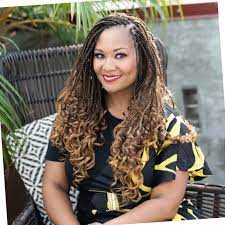By Dr. Sandra Miles
In the wake of legislation across the country taking aim at everything from Affirmative Action to Diversity, Equity, and Inclusion (the offices and the words), we are now starting to see lawsuits related to required diversity statements as a part of the hiring process.
As a fierce advocate for all aspects of diversity and a person who has no desire to work with people who struggle to value the humanity of all people, I’m honestly not all that disappointed by the prospect of Diversity Statements going away, and here’s a short list of reasons why:
- Admittedly, I was not a part of every search that occurred on the campuses where I have worked, but as it relates to the search process, I have been a part of or supported in some way, I have never seen a candidate be hired, advance in the search, or be excluded based on their Diversity Statement. I have seen candidates be excluded because they were not willing to write one, but if all we want to know is if a person is willing to write a statement and we aren’t really concerned with what they put in it, then maybe we should just ask them if they are willing to write a statement. I’m not suggesting that no single person has ever been moved by a particularly well written Diversity Statement, but if there has never truly been a systemic impact over time by the inclusion of these statements, then the request for the statement is just a stage and the submission is a performance.
- Of the campuses that required Diversity Statements, I’m not aware of any that required them for every single position posting. Taking my pessimism from point 1 out of the equation, if the utility of the statement is to eliminate the hiring of individuals who do not value diversity, but we do not use this method for every single position and did not retroactively require them from people who were hired before the statement was required, then how are we making sure that every employee on the campus values diversity? To put it plainly, we are not.
- Some people just write good (do you see what I did there?). Meaning – I am confident that there have been powerful Diversity Statements written by problematic individuals who didn’t believe what they were writing, they just believed you wanted to read it.
I don’t share this as a means to Monday morning quarterback Diversity Statements. However, in hindsight, I think we might want to consider which things we fight to keep and which things we admit were not achieving our original goals. If the goal was to learn more about the perspectives of new hires, are there other ways to do that in lieu of these statements? Diversity Statements are efficient, but if they are not effective, then maybe we need to consider using the interview process to ask the kinds of questions that would give us more insight into whether or not a person embodies the kind of humanity that does not pose a threat to the psychological or physical safety of any person they encounter.






